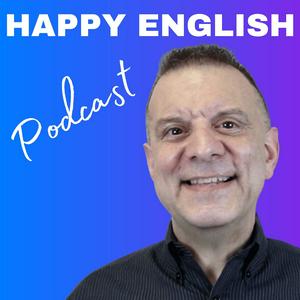This is Happy English Podcast, Episode 1,000. Episode one thousand. I honestly didn’t know if I’d make it to ten.
When I started this podcast, I had no idea who would be listening… or if anyone would be listening. And now, here we are - one thousand episodes later.
And the best part? I’m not doing this alone. It’s the comments and messages I get from all over the world every week. That’s what makes this special. Language connects people. And this podcast became a small part of that connection.
This week, so many of you sent warm, thoughtful messages. Messages about studying on the train… listening before work… improving pronunciation… gaining confidence with phrasal verbs. I couldn’t include every voice today, but please know - I heard you. And I’m grateful. Yes, thank you for 1,000 episodes
Happy English Podcast – Speak English Naturally I’m Michael from Happy English, and I help people speak English more naturally, confidently, and clearly.
🎥 Watch video versions of the Happy English Podcast on YouTube:
https://www.youtube.com/@HappyEnglishNY/podcasts
📘 Build your vocabulary with my free Vocabulary Workshop:
https://learn.myhappyenglish.com/vocabulary-workshop-signup
🌐 Learn more about my English lessons and courses:
https://www.myhappyenglish.com


